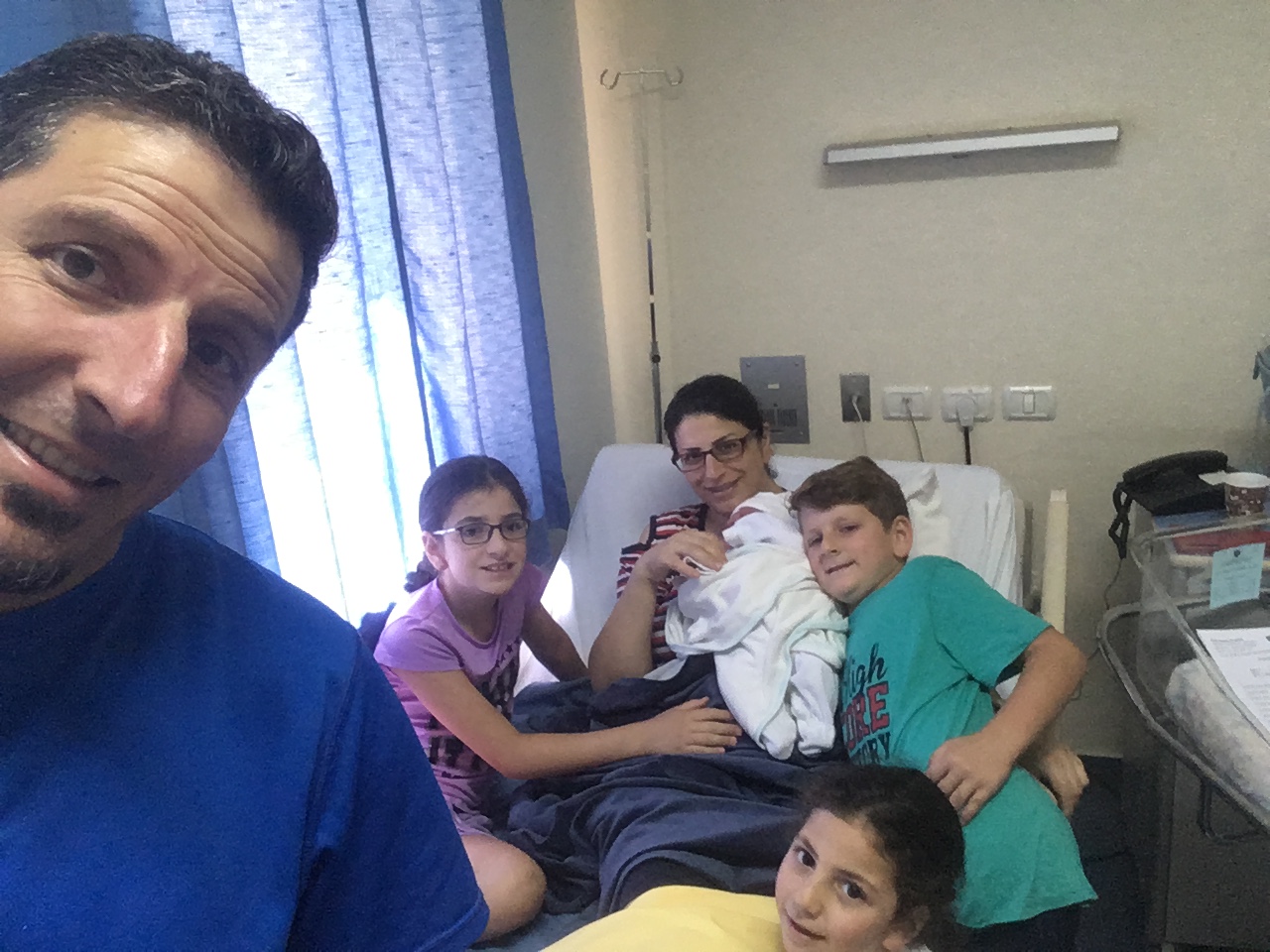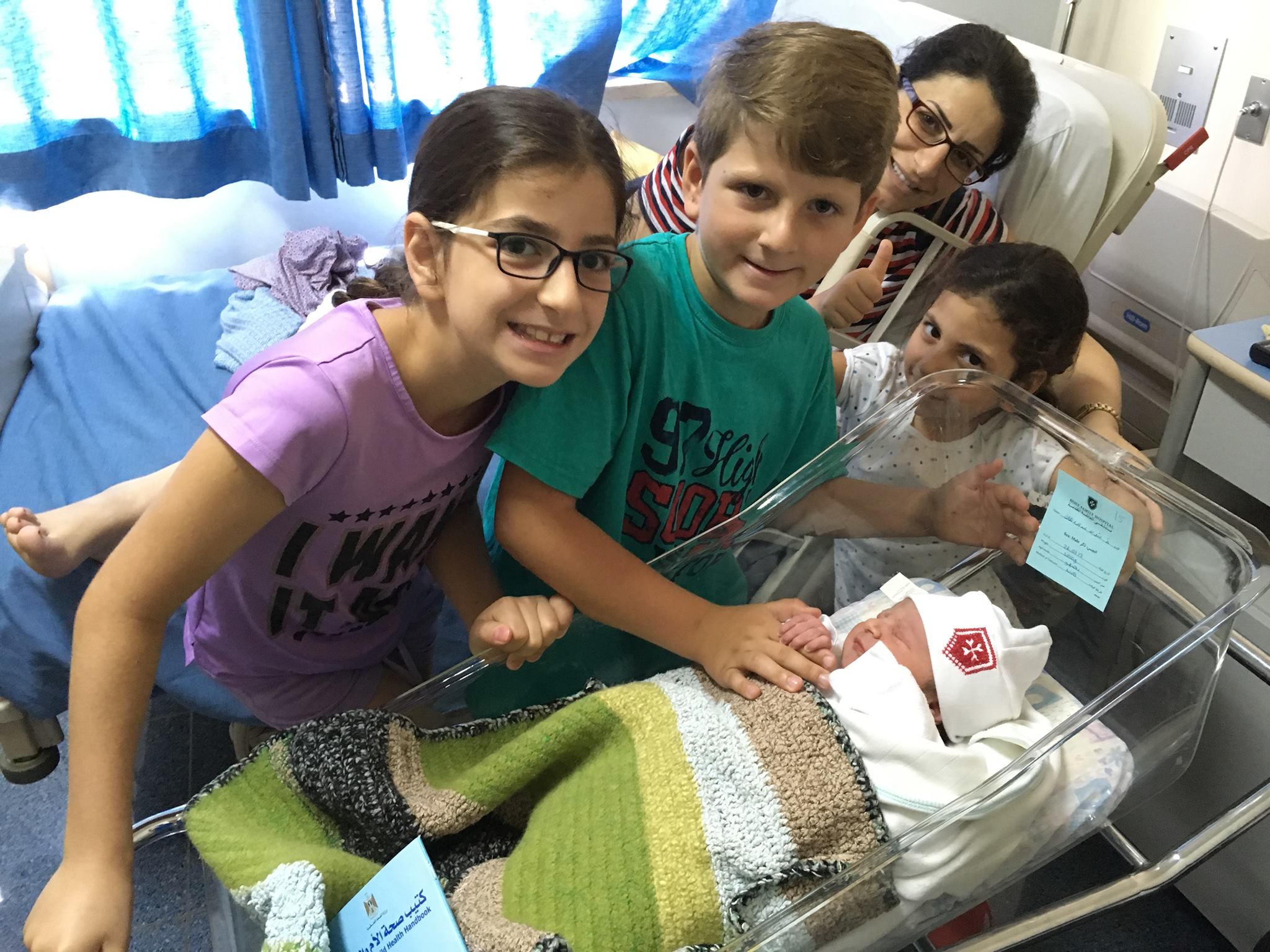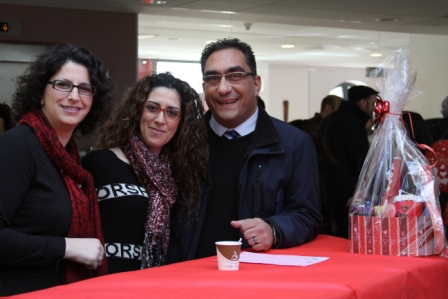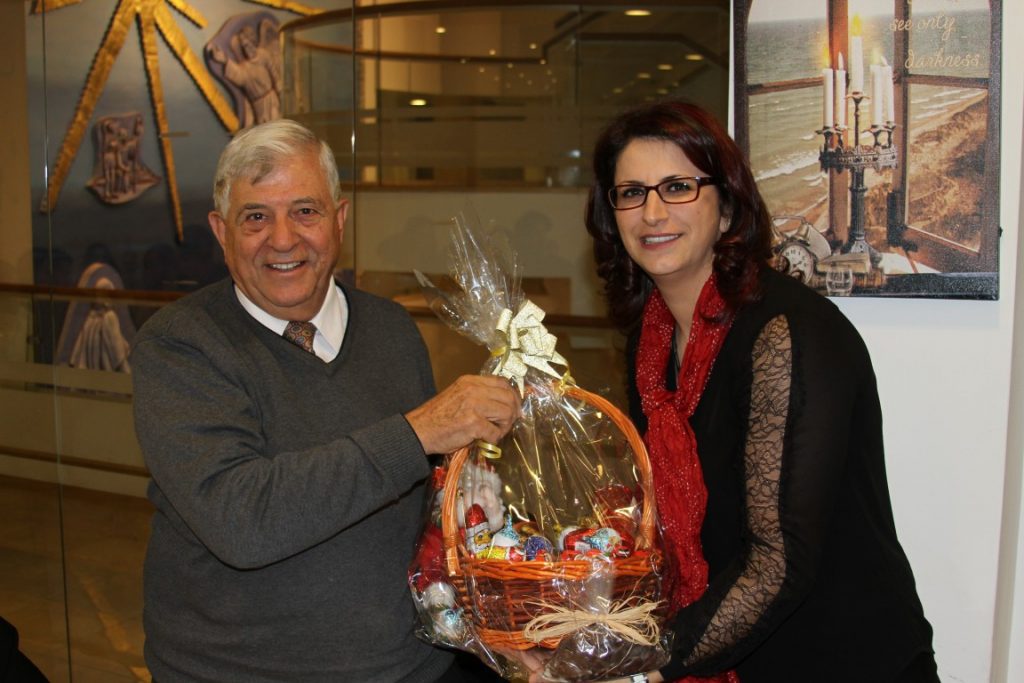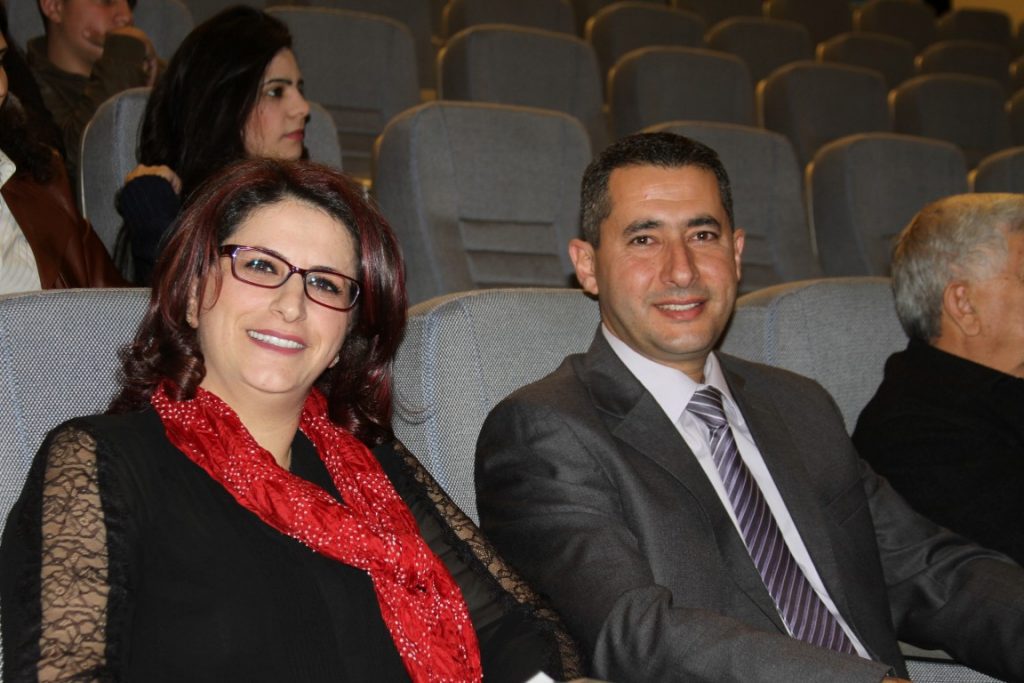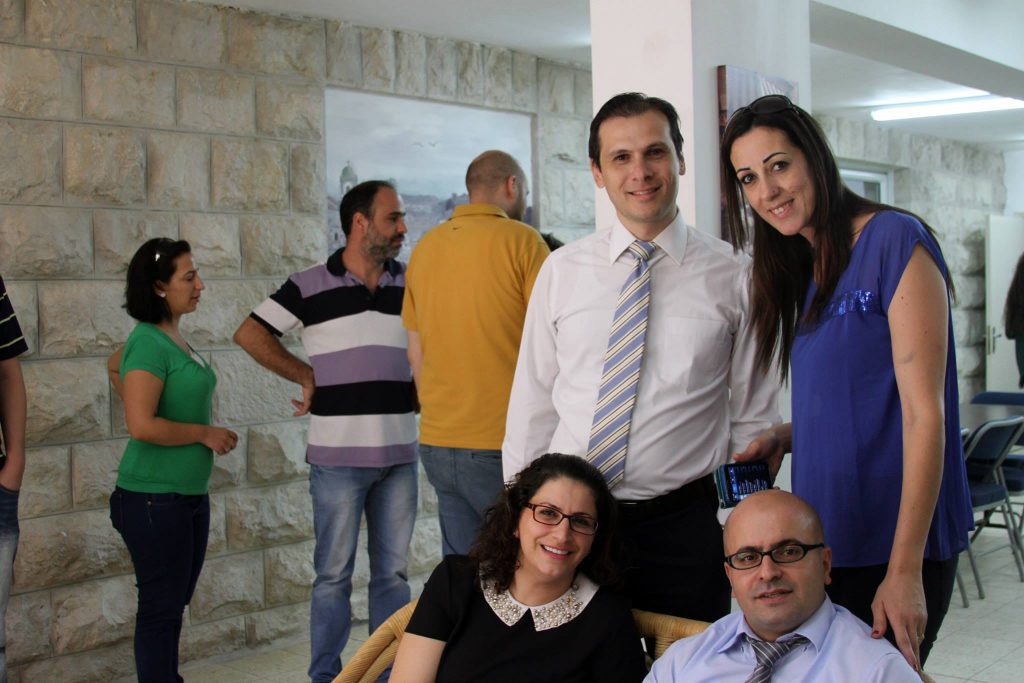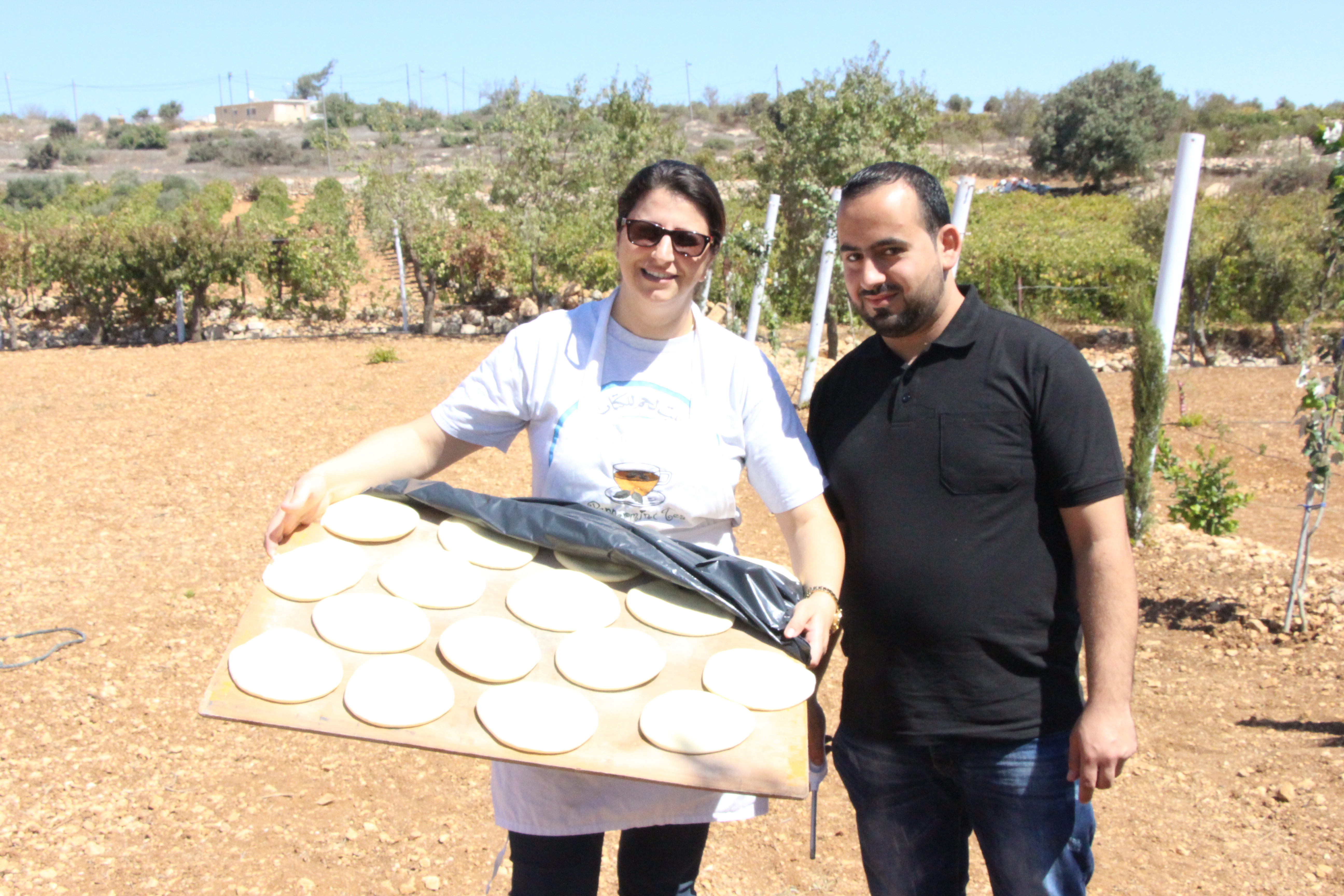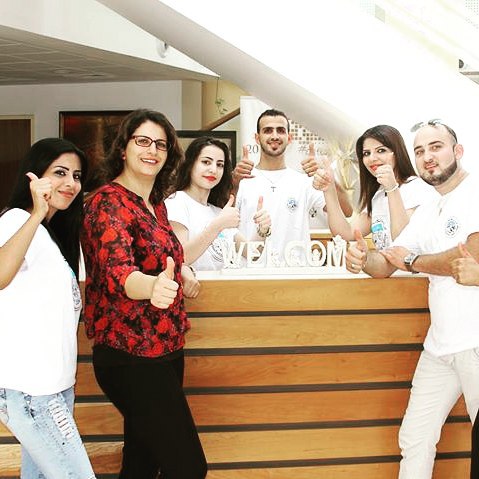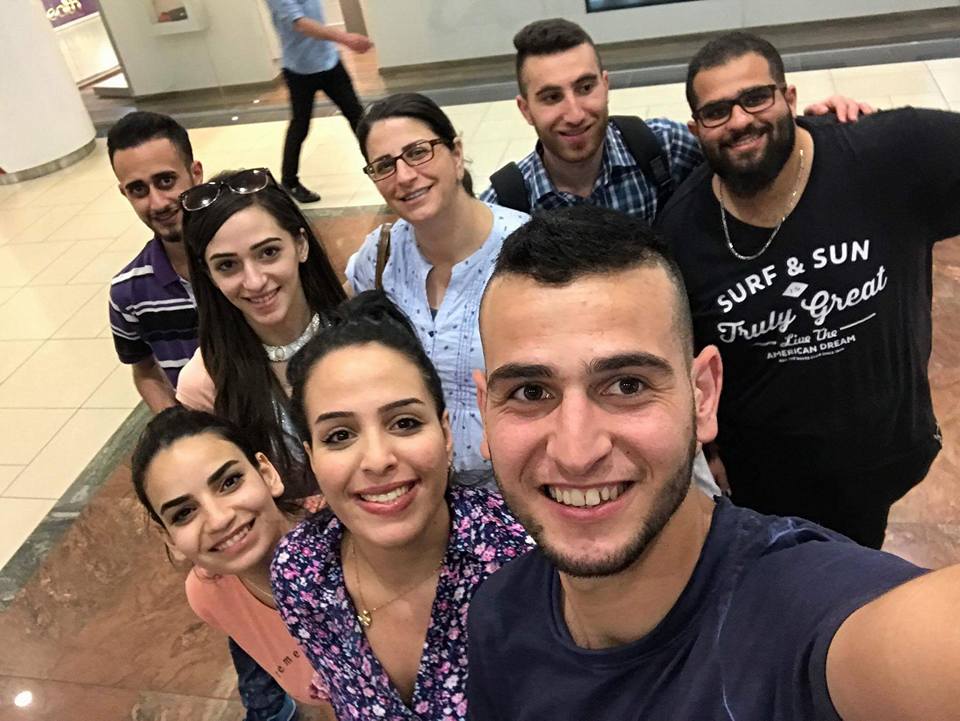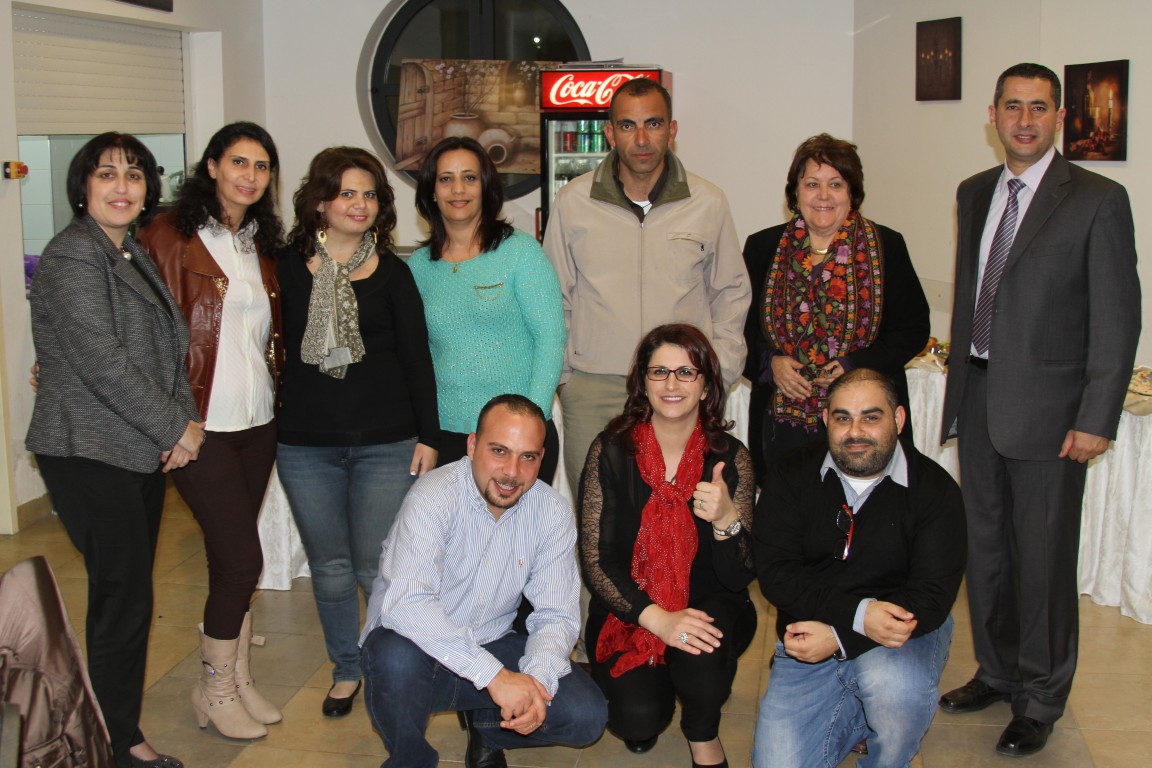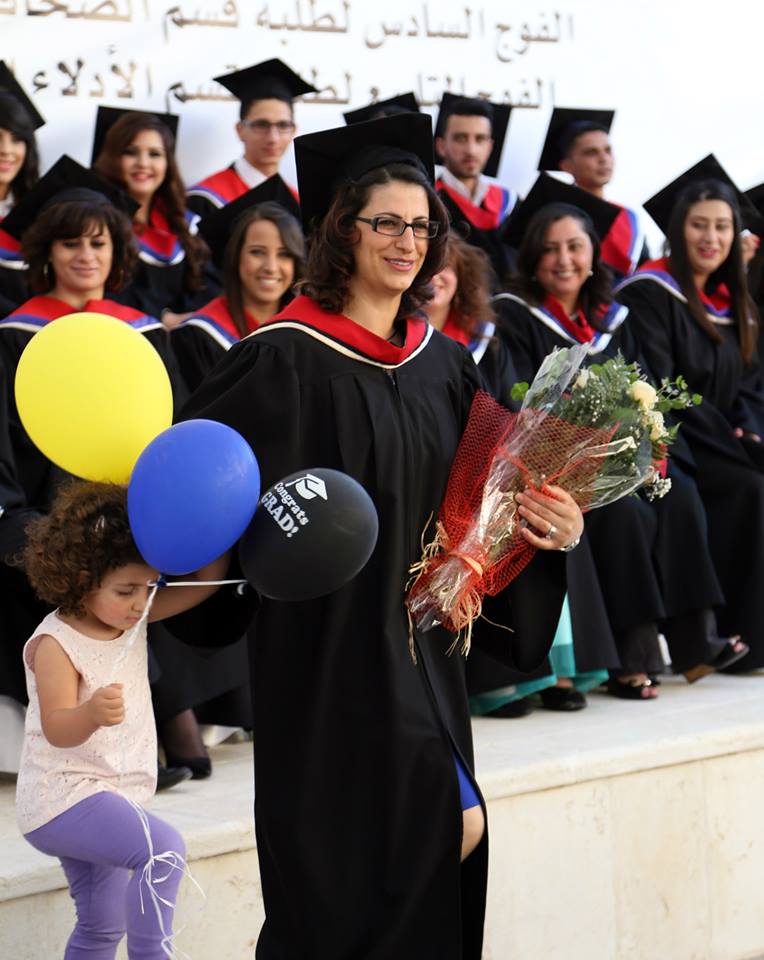
Blossoming in Any Circumstance Meet Our Faculty Member: Shireen Awwad Hilal

Blossoming in Any Circumstance
Meet Our Faculty Member: Shireen Awwad Hilal
“No one looks at an olive tree and asks why it hides its fruit. It blossoms when it’s ready and under the right conditions.”
― Sadiqua Hamdan, Palestinian Women: Rising Above Limitations, Expectations & Conditions
October is a month of life, harvest and land. We, as Palestinians, celebrate harvesting olive trees – the trees we have been taking care of the whole previous year! For those who don’t know, we are so connected to our land, especially our olive trees. Similar to an olive tree, we stand deeply rooted, we blossom and bear fruit for the people of this land.
Our special person this time is a strong, influential wife, mother and a Palestinian woman to the core!
Shireen Awwad Hilal, is the Dean of Students at Bethlehem Bible College, I interviewed her to talk more about her different roles as a Palestinian woman.
How long have you been married?
I have been married for twelve years. I have four children, two boys and two girls; Miron, my eldest is ten. Marcel is eight, Maria is four, and Rayan is two months old.
Tell me more about your role as a mother.
It is a major role in my life. The fact that I have two older children and two younger children makes it a bit harder. One role is just nursing the baby, feeding the children, and making sure they are maintained well. The second one is also making sure that my older children are doing their homework and finishing their school properly. I’m also involved in my children’s non-school curricula.
How do you find time to work and raise four children?
It’s very, very hard. I think it is hard because in our culture it is tough on women because our culture demands that women should take good care of their children and home. If they decide to work, it is their own problem. We also shouldn’t forget that there are men who are supportive.
What helps me is that I have full support from my family They help me a lot with the kids. I urge all women to find a way to balance their time and schedule to be able to care for the kids, and work outside if they can, especially because of the fact that we live in a community where grandparents are very involved.
BethBC: How long have you been a part of BethBC’s big family?
BethBC is not work for me; I look at BethBC as my second home. I have been part of the family of Bethlehem Bible College since 2003. I became a teacher in 2003 as a part-time staff for only two years. In 2005, when I got married, I returned to BethBC as a full-time teacher. In 2012, after obtaining my second Master’s degree, I became the Dean of Students of Bethlehem Bible College. So, it has been a very beautiful twelve years at Bethlehem Bible College.
How do you describe your relationship with your students at BethBC?
Twelve years ago, my relationship with the students was fun because they looked at me as a teacher their age. I even had students who were older than me. Now I look at my students as my children. So, it changed a bit, but at the same time they see me as a fun mom, and that’s a good thing. My relationship with my students is so strong; I love them so much. I care for them, and I really think that they need attention. It’s not only about their grades and courses, it is also about their personality, relationships, outings, church, and their relationship with Jesus.
What are your plans for this semester with the students?
Well, I just came back from maternity leave, so, this semester we will be more involved in the community. We will be attending amazing conferences the Bible College is hosting, such as the Global Leadership Summit, we will go on hiking trips, we will participate this month in olive picking harvest, and also making sure that they are doing well in their studies.
What about the new students?
You need to understand one important thing: Bethlehem Bible College always struggles to get students, especially for the Biblical Studies Program, and the reason behind it is because of the minority of Christians in the land. So, if less than 1.5% of the population are Christians in the land, how many are you expecting to be Biblical Studies students? So, the Biblical Studies students that we bring mainly come from churches because they have something in their hearts to serve as a Sunday school teacher, a pastor and so on. Every year we pray for students, and the Lord provides. For me, raising twoto be good leaders in the community is an amazing accomplishment.
Do you have the graduates of BethBC in your vision?
Bethlehem Bible College started in 1979, and we have over 500 students who have graduated from the College. We are trying to reach as many as we can. We want to know what our students are involved in. What are they doing? Are they influential? Two years ago, we did a study on our graduates, and we found out that over 60-70% of our graduates are influential in their own community, which is good news. Some of them became pastors, some of them became directors of organizations and so on. An example I can give is Rev. Dr. Jack Sara, our very own president, who was one of BethBC’s students So, we are trying to keep track of our students who graduated. One, to support them in their field, and two, to keep up and to know more about what they are doing.
How is BethBC changing the students’ lives and hearts from your perspective?
It’s changing their hearts by considering each student a family member. We look at them not only as students, but as a part of our big family. They come to school only thinking of how they can graduate with a degree, but when they leave the Bible College, they understand that it was beyond that. It is actually the big family that they were part of, and this is why they always come back and visit, some of them even become staff. We change their lives and perspective about their own land and how to be more involved in the society through for example Christ at the Checkpoint conference.
Do you have any special stories that you would like to share with us, about the students?
One of the days when we were serving the community, I took my students to one of the houses of two elderly people. The wife was 83, and the husband was 87. The husband had Alzheimer’s disease, but he was physically fine. The wife had a sound mind, but she had a broken hip, so she couldn’t move. So, we came as students, and we cleaned the house for them. It had not been cleaned for the last four years. The woman kept crying from the time we arrived until the moment we left, and before we started praying and worshiping, I asked her why she was crying. She said, “I was one of the BethBC’s staff.” That was thirty-eight years ago, when she was the cook at BethBC. She added, “After all those years I served at Bethlehem Bible College, now BethBC comes to serve me.”
Tell me about your passion for Palestinian women.
The reason behind that is because I studied my first MA degree in the United States. There, I experienced freedom and respect. Comparing that to what we have here, I’m not saying that we are not respected, but I felt that our women were marginalized. So, when I came back here, I said that I want to do something for women. And from that time on, I became involved in women’s ministry.
What motivates you to do what you are doing here in this land?
Hope. Despite all of what’s happening, despite all the lack of movement, the political situation, and seeing soldiers on daily basis harassing people at checkpoints – despite all of these things, I believe that there is hope, and that this hope is here in this country, not somewhere else. And to me, hope is very important because if you don’t have hope, you cannot live in this country. As a Palestinian Christian woman, I want to see the future of my children in Palestine and not anywhere else. To do so, you have to have hope and faith, and I have faith that the Lord Jesus will never forsake His children, so we become salt in this land.
And for my beloved students I say, “Be patient, faithful, and hopeful, because if you have these three things, then you can continue serving your Lord on His own land”.
Amira is the Communications Coordinator of Bethlehem Bible College. She is a committed Palestinian Christian who has a passion for writing about the intersection of faith and seeking justice for her fellow countrymen. To read more of her writings sign up for Bethlehem Bible College’s monthly newsletter.
